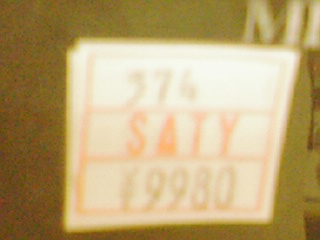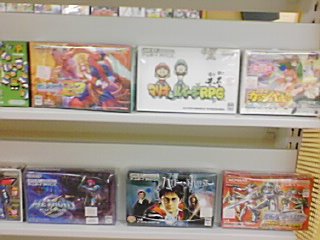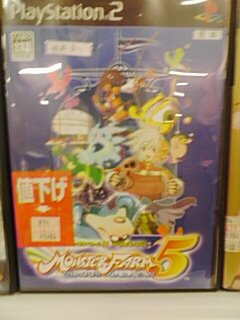Violent Media a like a Gateway drug into Violence and Crime?
Today, I have to mention something that I have though but have had little firsthand evidence of for a very, very long time: Video games, even violent, criminal video games, do not lead to violent, rebelious behaviour. Just as I have stolen thousands of treasure chests worth of booty in video games and have not stolen as a result, just as I have ended the lives of thousands of fictional people in games and never gotten even close to killing anyone in my life, just as I have read about horrific executions, treason, rape, torture of a thousand kinds: I have never once indulged in any of these things in my life. Dozens of so-called "experts" in America have their heads in a hole in the ground if they believe that poor behaviour by fictional or even real characters in the media leads to increased rates of malevolent action in the real world. People have done polls (none of them satisfying but a few), people have been interviewed, trials have been had, and now The National Institute of Media and the Family has found that 87% of pre-teen and teenage boys play games rated "M." Now, this seems somehow strange to me for one reason: 87% of teenage and preteen boys are playing games rated M, but our consumer base for all videogames is something around half to two-thirds that number.
In states like Washington, selling an economy box of cigarettes or a keg of liquor to a 16 year old is a much lighter fine and/or jailtime (most of the time it is a little jail time with a large fine) than it is to sell a game that depicts consensual sexual relations between married couples to the same young man/woman. 3 months jail time and at least a $500 fine as well as the loss of your job and probably any future job in the gaming industry. Even if a 15 year old with a fake ID, well on their way to becoming an adult, only a 1.01-2 years from possibly military service, and married himself will land a clerk a minimum sentence of 3 months in prison and $500 jail time, with additional charges to the home store of up to $5000, which is enough to shut almost any small business that doesn't have backup money and happens to sell games intentionally or accidently to minors. The same young man can buy a book with even more horrifically described events easily, and even acquire plenty of movies which describe much more graphically detailed events. But, he can still buy a video game with execution style-shooting, drug dealing, pirate-like swearing, physical abuse, psychological torture, and many other non-sex-related criminal or immoral acts, without the slightest bit of worry from or to the sales cashier. Strange?
Well, for decades now people have been trying to prove that violent media like television and video games lead to violence. Hmm. That's strange. Well, we wouldn't want to do any cross cultural research to see if other countries with similar habits in videogames but with other variables to account for are seeing the same problems, would we, Mrs. Senator Hillary Clinton? Senator Kohl? Senator Baca? (A sidenote, but by some coincidence, "Baca" means "idiot" in Japanese). Oh, I forgot Lieberman. Now, all of you claim to have good sources by people from the APA, and all the "logical" evidence is pointing the right way, right? For instance, crime has gone up since violent video games and sinful television shows have started to become common in our lives. Wow, well, that proves. You guys sure did a good job. Well, maybe we should look at someone else's data, you know, to double check our work off of someone else. Nah.
Well, I'm in Japan. This country has the largest base of gamers by precentage and by population in the world. They also produce most of our violent videogames, and produce a whole host of games with satanic messages, pornography, rapine, murder, etc. that obviously the root of so many of our problems in the US! Oh, and look! Disgusting B-class horror films are a huge genre here, one which an absolutely staggering portion of the population are involved in regularly! Well, if all the theories of Lieberman, Clinton, Kohl, Baca, and all the rest from high and low are right, we'd expect Japan to have high rates of murder, rape, suicide, torture, incest, robery, smuggling, rudeness, reclusive lifestyles, vampiristic blood-drinking, assassination, coups, assault, drug abuse, high birth rates...(I won't keep going. I could write for about every law that America has in common with Japan, because if there is anything "bad" portrayed in our media, it is almost always worse in the Japanese media.) Is this the case, as all the theories are leading us to believe? Or are conservative media people making this hype so as to promote their person moral ambitions?
Behold! Japan has some of the lowest crime rates in the world! They have less of all the aforementioned crimes in the US. Goodness! If only they were reading this now, they'd be forced to watch their fragile little conservative worlds so carefully constructed like a tower of cards, each base to build new knowledge and understanding more shaky than the last...if only they would have thought to simply think that the United States to see if anyone else had the answers, they wouldn't have had to work to persuade so much money to be spent on meaningless research that lead to false conclusions through its own false premises! What a setback. Now how will the get elected? They'd better find some other non-issue. Why would anyone believe something so ridiculous as what they were running on, after all? When news breaks, things will be awfully embarassing. A false epidemic? You'd better do more than that, Senators.
I've seen it with my eyes now. I've only seen the police have to speak to two people, one was me. Why did they speak to me? Well, it was obvious. I was a foreigner they didn't know from around Aoyama on a bicycle. (Bicycle theft happens occasionally around here, and a very disproportionately large percentage of crime is commited by non-video gaming foreigners, despite Japanese blood being more than 99% of the population. I was an American on a bike. Well, maybe I looked like I don't play enough violent video games. They pulled me over, asked for my passport, visa, and foreigner registration (green card), as well as what my exact address was. They interviewed me for 30 minutes, asked for the warranty and proof of sale on my bike, went to my house to see if I really live there, checked my documents for proofs with the government, and asked me everything they could to determine that I was not a criminal in their peaceful town. The other person I saw talking with police had a flat tire or something. They were very thorough. But chances were, if I was a foreigner, that my chance of being a criminal was higher by a rate of 1000's of % than anyone else in the entire city. I truly cannot blame them. I am not even the slightest bit angry at them.
I am however, angry at the "well-educated" band of anthropologically inept fools we call experts in America. We are supposed to be the elite. We act enough like it. So how is it that we behave like such fools? It really bothers me.
"But the poorly-parented children that never recieve any love or attention from their families or cruel and also-poorly raised children have killed other children, and said that they learned what to do from videogames!" Wow...really? Well, if we taught our own kids the value of reading, they would have come up with even more elaborate and though-through plans, wouldn't they? Phew, lucky for Columbine! Things could have gotten really hairy! But it is a good thing that they had all those guns in the house to protect their children in case anyone dangerous came around. Oh, wait, you and your kids are the dangerous ones! It's too bad that rushing into a wedding in order to have unsinful sexual relations created an unstable, family that just happened to be gun-toting. Must have been the videogames!
Well, here's a little something to lighten the mood:

This is a picture of a father taking his daughter videogame shopping. They are playing the demo together. Right now, Daddy is playing, and she is giving her advice. He listens carefully to what she says, not doing what she wants verbatum, but letting her know when she's given good advice. I'm guessing they trade off at this thing. They were both very content-looking when I saw them. Later I saw another father-daughter gaming combo come out of the store as I was leaving for my bicycle. They seemed even more smiley and pleased with themselves! Oh, but those poor children! They are doomed to lives as a part of an endless cycle of violency, felony, and mortal sin! If only they could do like Americans do and leave their children to be taught everything about their heritige in a few moments with thier parents when they aren't at work (if they have both of them), and, most of all, would keep videogames with consensual sexual relations away from their teenagers that have known all about sex for years. It's a good thing that months of legislation are going into action to ensure that violators of video game sales, wheter accidental or intentional, proper penalties are paid-out for a crime that is short only of felonous drugs that are illegal for anyone to consume.
God bless America (does that ever sound like a direct order to you?). We may need the blessing!








